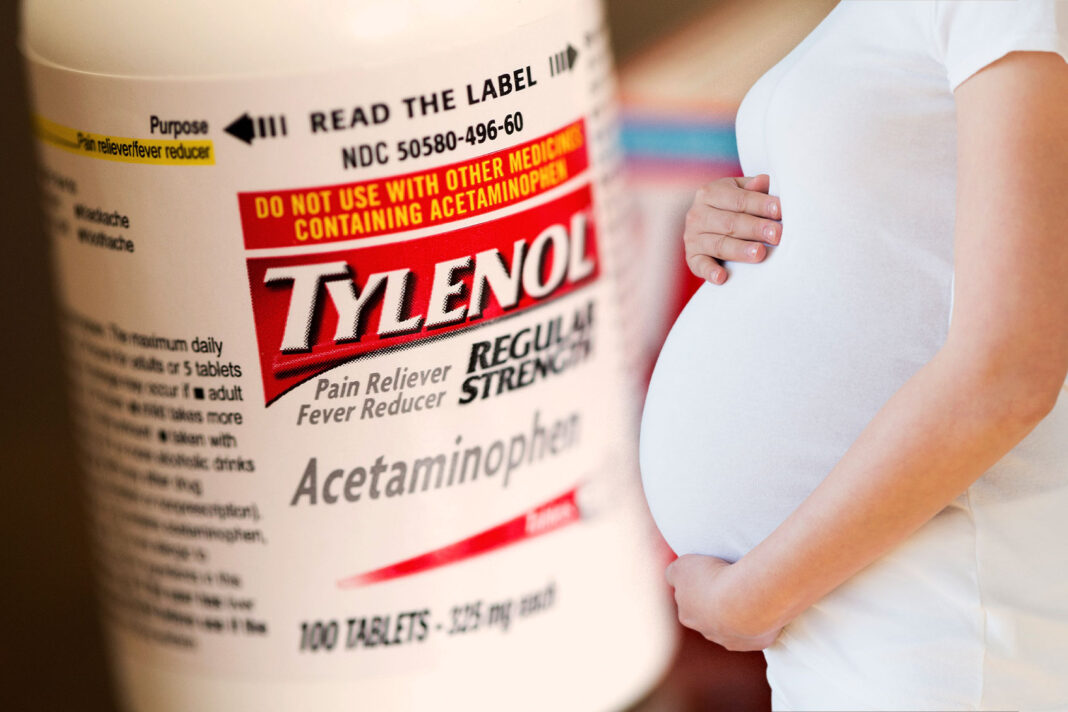— Shares Facebook Twitter Reddit Email view in app The pharmaceutical company Johnson & Johnson, manufacturer of Tylenol , is in the hot seat as it faces more than 100 lawsuits from families alleging that the ubiquitous pain relief medication can cause autism, ADHD, and other developmental disorders in unborn children when taken by pregnant women. The claims, if proven, would be a shocking twist for acetaminophen, the generic name of the drug in Tylenol, which is on a short list of medicines considered “essential” by the World Health Organization. Yet despite being at the heart of the case, the science on acetaminophen is unsettled.
“Other studies have argued that the links between acetaminophen and neurodevelopment disorders are overstated. ” At the heart of the lawsuits are a series of studies, including one from 2019 published in the journal JAMA Psychiatry; that study found that acetaminophen is “associated with increased risk of attention-deficit/hyperactivity disorder and autism spectrum disorder in children” and therefore warrants further investigation. Similarly a 2021 study in the journal Nature Reviews Endocrinology concluded that the existing body of research “suggests that prenatal exposure to APAP [acetaminophen] might alter fetal development, which could increase the risks of some neurodevelopmental, reproductive and urogenital disorders.
” Those researchers likewise called “for precautionary action through a focused research effort. ” “The period of fetal development is a very vulnerable stage,” Hugh S. Taylor, chair of Obstetrics, Gynecology and Reproductive Sciences at the Yale School of Medicine, told Yale News regarding his support of a 2021 statement urging pregnant women to exercise caution before taking acetaminophen products.
“Things are moving, changing quickly. The changes that occur during that time period are then programmed for the rest of our lives. Things that don’t affect adults may affect these crucial developmental windows.
” Related Why there’s a children’s Tylenol and Motrin shortage — and how we could end it By contrast, other studies have argued that the links between acetaminophen and neurodevelopment disorders are overstated. A 2018 study from the American Journal of Epidemiology argued that although “acetaminophen use during pregnancy is associated with an increased risk for ADHD, ASD, and hyperactivity symptoms,” those results “should be interpreted with caution given that the available evidence consists of observational studies and is susceptible to several potential sources of bias. ” Similarly, a 2021 study in the journal Nature Reviews Endocrinology (unrelated to the previous study) asserted that while pregnant women should use acetaminophen as sparingly as possible, there were supposed methodological issues with the research cited by the authors of the previous Nature Reviews Endocrinology study.
They claimed the authors proved correlation but not causation, did not account for the hereditary component of autism spectrum disorders (ASD) and seemed to harbor confirmation bias in that “there is uncritical appraisal of studies that support the narrative of the authors,” among other problems. As such, they questioned whether links between acetaminophen and various disabilities should be definitely stated. Want more health and science stories in your inbox? Subscribe to Salon’s weekly newsletter The Vulgar Scientist .
As a separate 2021 study in Nature Reviews Endocrinology explained , there are risks involved with expecting mothers ceasing Tylenol use just as there are potential risks involved with using it. “Although the authors acknowledge the vast limitations of past studies on this subject, they do not consider the clinical consequences that could result from their premature precautionary statements,” those authors explained. Comparing not taking Tylenol to vaccine hesitancy, they argued that “there are many examples in which undertreatment of maternal illnesses due to medication hesitancy poses a far greater risk to the fetus and mother than does exposure to the medication.
” Long before these studies, there were known risks to acetaminophen, even for those who are not pregnant. Everyone who uses acetaminophen products should avoid mixing them with alcohol, as this can lead to liver damage. In addition, elderly people who use acetaminophen products to treat issues like arthritis pain need to be cautious as well about potentially using too much to treat their symptoms.
“As long as your overall daily dose is under 3,000 milligrams, [in a 24-hour cycle], it’s usually fairly safe,” Ashley Garling, clinical assistant professor at the University of Texas at Austin’s College of Pharmacy, told AARP . Read more about pregnancy Research shows health risks of using marijuana in pregnancy Stray pollutants in fast food and microwave popcorn could be affecting pregnancies More people over 45 are getting pregnant — and abortion laws aren’t ready for the complications By Matthew Rozsa Matthew Rozsa is a staff writer at Salon. He received a Master’s Degree in History from Rutgers-Newark in 2012 and was awarded a science journalism fellowship from the Metcalf Institute in 2022.
MORE FROM Matthew Rozsa Related Topics —————————————— Acetaminophen Adhd Autism Birth Defects Brief Health Pregnancy Tylenol Related Articles Advertisement:.
From: salon
URL: https://www.salon.com/2023/05/04/a-shocking-says-tylenol-caused-birth-defects-its-possible–but-the-science-isnt-settled/



